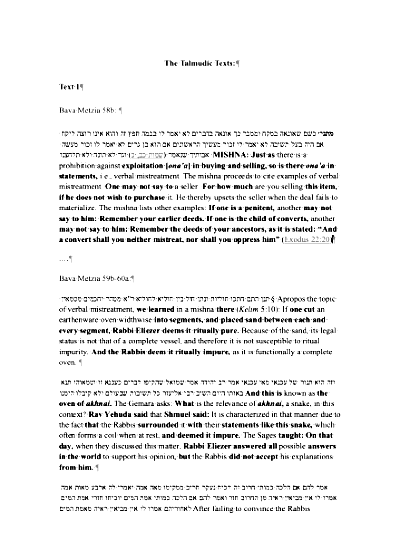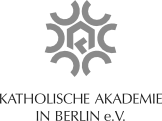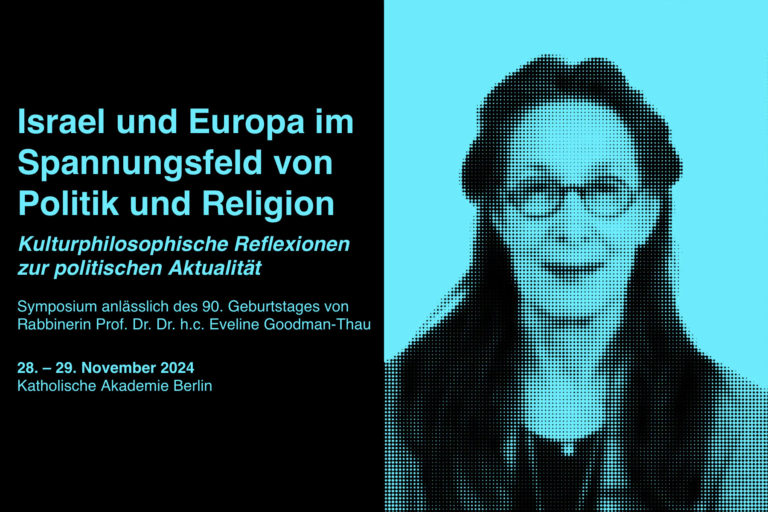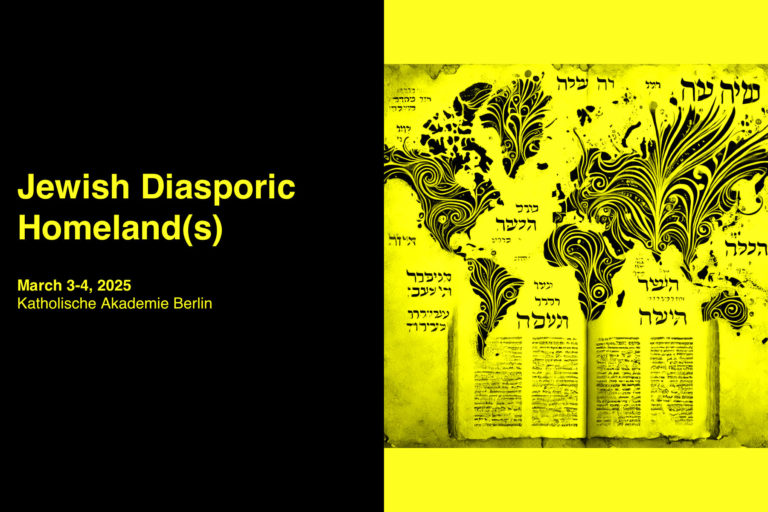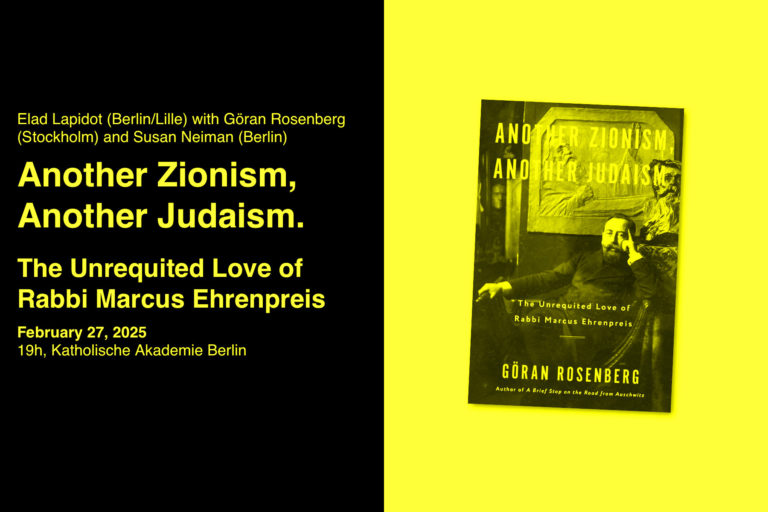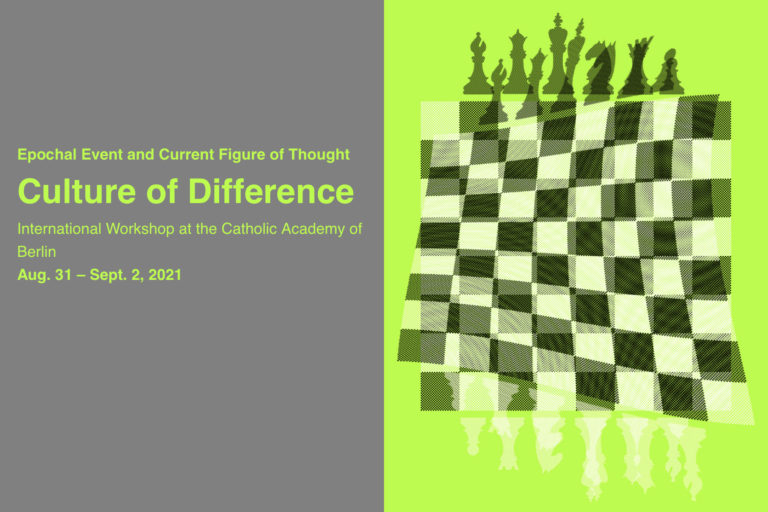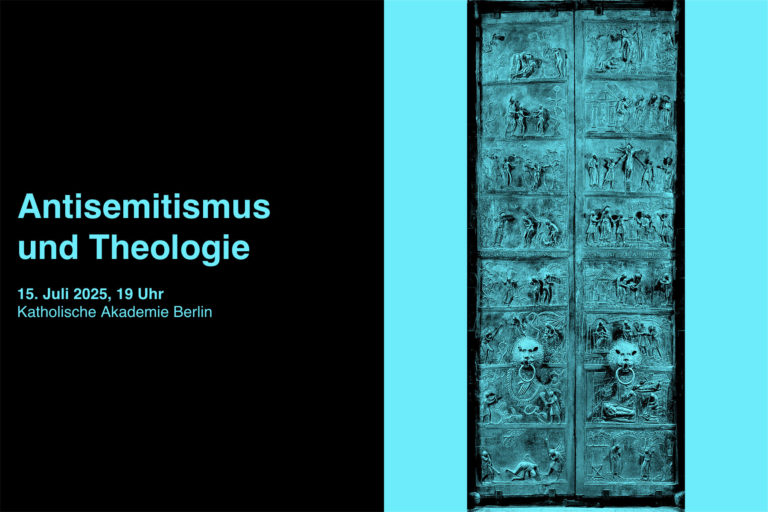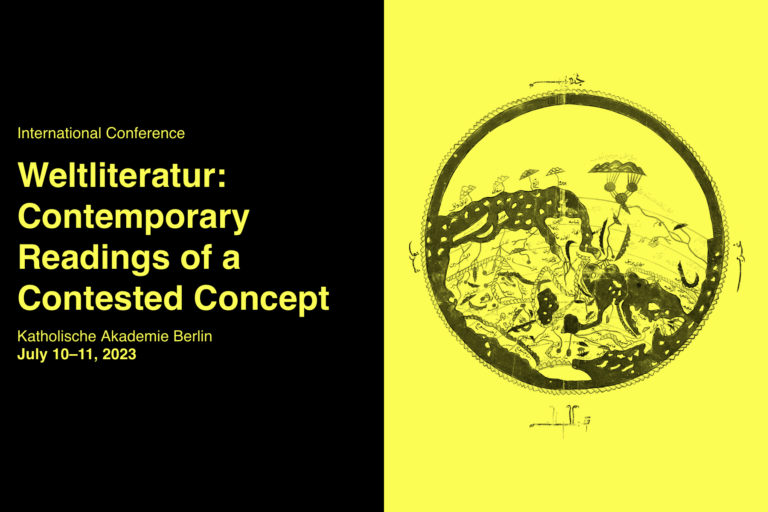International Workshop on Talmud and Contemporary Thought II
Politics of Not Speaking
October 20–23, 2022
Center for Jewish Studies Antwerp
Politics of Not Speaking
Talmud and Contemporary Thought II
The Workshop on Talmud and Contemporary Thought is an annual intellectual encounter, which explores ways of how the Talmudic tradition of text may offer a medium for contemporary thought, in the sense of thought that engages on issues of contemporary social, political and cultural concern.
The workshop revolves around a Talmudic text, which serves as a medium and environment for thinking together politico-theoretical questions of contemporary concern. The program is based on readings of these texts in view of the guiding questions, which are presented by different participants as a basis for group discussions. A unique feature of the workshop is that it brings together intellectuals with various backgrounds, some more Talmudic, some from other disciplines, in an attempt to enrich conversations and broaden horizons.
Organizers: Elad Lapidot, Vivian Liska, Jan Morrens
The theme for 2022 is politics of not speaking:
Politics is all about speaking, namely about the social communication and discourse that generate and maintain social organization, the coordinated action of collectives. Aristotle famously laid “logos”, namely speech, discourse, rational communication, at the basis of the “polis”, the city, the state or the polity.
Yet, even if logos, language and speech open up the dimension of politics, actual political reality has been just as much connected or even predicated on not speaking. The biblical myth of the Tower of Babel narrates the beginning of human politics as arising from the break of communication. In modern political theory, Carl Schmitt pointed out that inasmuch as organized social life within the state is based on debate, discussion and normative order, the very existence of the state, as independent and sovereign, signifies independence from logos, and is based on a non-negotiable act of self-affirmation. The normative order of the state stops at its physical border.
New politics may be said to arise not from a new conversation, but from a new interruption of communication. In such an interruption, the continuity and coherence of discourse, of the established normative order, is disrupted by the emergence of a new subjectivity. The new political subject emerges as the break of the existing coherent order, as the position that has no place in the normative conversation.
The great political movements of modernity may be analyzed as great events of not speaking, namely of breaking with the established order of discussion: we may call them events of logo-clasm, logo-clastic eruptions. This seems obvious with respect to revolutions, which consisted in communicative disruptions: from strikes to armed resistance, from war to terror.
Another logo-clastic eruption was the emergence of anti-colonialism. Anti-colonial writers have been especially concerned with the question of the dominating, oppressive power of discourse. Anti-colonial thought has been centrally invested in thematizing cultural oppression and in laying the foundations for politics of communicative disengagement, of not speaking. Anti-colonial politics has generated various forms of contemporary logo-clastic action: from armed resistance and guerilla warfare to more discursive forms, such as academic and cultural boycott and the breaking of diplomatic relations.
Through readings in talmudic passages, this year workshop seeks to explore various questions, conceptual challenges and historical examples, concerning the politics, the ethics and the epistemology of not speaking. A common characterization of talmudic intellectual culture emphasizes its dialogical, conversational, polemic nature. Talmudic thought would be based on a culture of pluralistic, open and free exchange, on questioning and debating – on speaking. Nevertheless, foundational talmudic narratives, which concern constitutive moments in the establishment of the rabbinic intellectual world, also contain crucial moments of not speaking – of silencing, of limiting or restricting the conversation, of excommunication and ban, of repression and death of logos, of logoclasm. In this year’s workshop we will read and re-read some of these well-known passages in an attempt to contemplate the practice of not speaking.
The Texts
The texts, in original and in English translation, may be found here:
Voices
“The workshop consisted of 4 days of total immersion in texts, debating with each other, listening to each other, helping each other understand intricate issues. I can’t remember anything similar in terms of conceptual intensity and interpersonal communication. It was an exhilarating experience of profound academic and intellectual significance. I’m forever grateful to Prof. Elad Lapidot for creating such an encounter.”
Annabel Herzog
The Workshop on Talmud and Contemporary Thought was a very beautiful intellectual experience. This format opened up an entirely new space for conversation, reflection and debate, between participants from various backgrounds, but also, more fundamentally, between different thinking methods – philosophical and Talmudic. We understood during these days how much they could nourish each other, to open up new perspectives to thought. Thank you for this experience, which should be continued.
Quentin le Gurun
Participation in the workshop Talmud and Contemporary Thought was a wonderful and invigorating experience. I haven’t felt so intellectually alive for a very long time! To be able to read closely and discuss the selected texts from the Talmud with the best talmudic and philosophical minds of our times was a rare opportunity from which I learned a great deal. The debate was thorough and generous, conducted in the true spirit of the talmudic dialogue which, after all this time, still proves to be the most efficient model of the collective hermeneutic effort of interpretation. I wish all our conferences had such a sense of focus, stake, and urgency.
Agata Bielik-Robson
“Talmud and Contemporary Thought” is a collective experiment among participants representing a range of academic backgrounds and disciplinary practices. This set-up is highly generative of new ideas about what Talmudic texts can mean for our time. Having a short, suggestive text as our common frame of reference, ample time for each presentation and subsequent discussion, as well as substantial breaks and many meals in common, allows everyone to get to know each other’s different ways of working and thinking. The atmosphere is relaxed, with mutual respect and openness to all kinds of interpretation.
Dana Hollander
An extraordinary workshop in every respect: an inspiring topic, a perfect planning, presentation and introduction, a stunning diversity of participants, approaches and perspectives, excellent presentations, lively discussions and a warm atmosphere – thanks so much, Elad, you did a truly wonderful job. To be continued: this is a true enrichment of the intellectual landscape beyond Jewish Studies proper.
Vivian Liska
”The Talmud and Contemporary Thought workshop in Antwerp was the most challenging and rewarding academic experience I have had in recent years. Not only was the meeting itself exemplarily well organized. The multi-faceted group of participants––representing expertise and students in Talmud exegesis, Jewish Studies, and philosophy––generated both top-level research discussions and sensitivity to the problems of interpretation. The rare combination of scholarly excellence, personal engagement, and generosity reminded me of academic life when at its best. Having not studied Talmud before, this unique workshop provided me with tools to read and understand the material in a way that will enrich my future work in philosophy.
Ulrika Björk
Participants
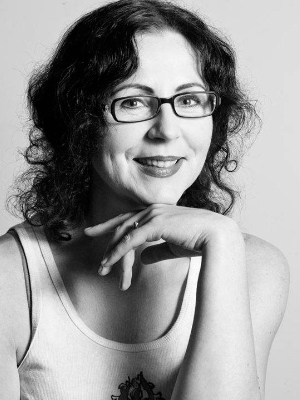
Agata Bielik-Robson is a Professor of Jewish Studies at the University of Nottingham and a Professor of Philosophy at the Polish Academy of Sciences. She published articles in Polish, English, German, French and Russian on philosophical aspects of psychoanalysis, romantic subjectivity, and the philosophy of religion (especially Judaism and its crossings with modern philosophical thought). Her publications include books: The Saving Lie. Harold Bloom and Deconstruction (Northwestern University Press, May 2011), Judaism in Contemporary Thought. Traces and Influence (coedited with Adam Lipszyc, Routledge 2014), Philosophical Marranos. Jewish Cryptotheologies of Late Modernity (Routledge 2014) and Another Finitude: Messianic Vitalism and Philosophy (Bloomsbury, 2019).
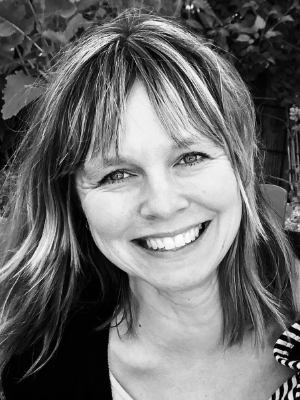
Ulrika Björk (b. 1970) is a senior lecturer in philosophy at Södertörn University in Stockholm. She received her doctorate at Helsinki University in 2009 with a dissertation on Simone de Beauvoir’s conception on subjectivity and the relation between philosophy and literature. Her research interests are within phenomenology, existential philosophy, early 20th century Jewish thought, and feminist philosophy. She is currently writing a monograph on historiography and reconciliation in Hannah Arendt’s work. She is the head of the research network Experimenting with tradition – early 20th century East-European Jewish and German dialogues as a source of philosophical modernity (2022-2023), funded by The Foundation for Baltic and East European Studies. Recent publications include “The Eclipse of the Transcendent and the Poetics of Praise: Arendt’s Rilke” (2018) and “The Dissident and the Spectre: Reading Havel with Derrida” (2021).
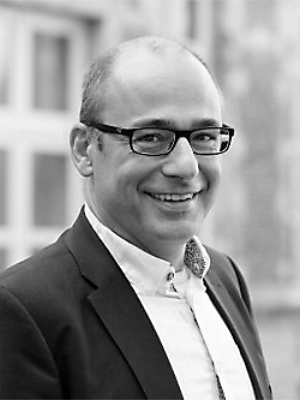
Arthur Cools studied Philosophy at the previous Universitaire Faculteiten Sint-Ignatius Antwerpen (UFSIA) and at Paris I Panthéon – Sorbonne, and Roman Languages at the KULeuven. He received his PhD degree in Philosophy from the Higher Institute of Philosophy (KULeuven) in 2003. His PhD, Langage et subjectivité. Vers une approche du différend entre Maurice Blanchot et Emmanuel Lévinas, was published by Peeters in the collection “Bibliothèque Philosophique de Louvain” (2007). He teaches philosophy of culture, contemporary philosophy (continental tradition), aesthetics and philosophy of art at the Philosophy Department in Antwerp. His research expertise lies in the field of contemporary French phenomenological, hermeneutic and (post)structuralist philosophy and in the field of philosophy of literature. He published articles on 20th century philosophy, modernist literature, subjectivity and fiction theories in various peer reviewed journals such as Ethical Perspectives, Aesthetic Investigations, Bulletin d’Analyses Phénoménologiques, German Quarterly, ANTW, amongst others. He co-edited book projects such as Debating Levinas’ Legacy (Brill, 2015, together with Andreas Breitling and Chris Bremmers), Traduire Kafka (Kimè, 2019, together with Eric Hoppenot and Vivian Liska) and Levinas and Literature (De Gruyter, 2021, together with Michael Fagenblat), amongst others. He is currently working on a history of the 20th century philosophy and on the journal issue “Arts, Ontology and Politics” (together with Jan Bierhanzl).
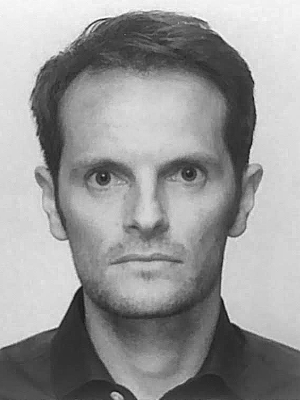
Quentin le Gurun is a PhD student in Philosophy at the University of Lille. His research, under the supervision of Prof. Elad Lapidot, focuses on the critical dialogue between Jewish thought and political philosophy in French Jewish authors of the second part of the 20th century. He previously worked on the meaning of prophecy in authors such as Charles Péguy and James Darmesteter.
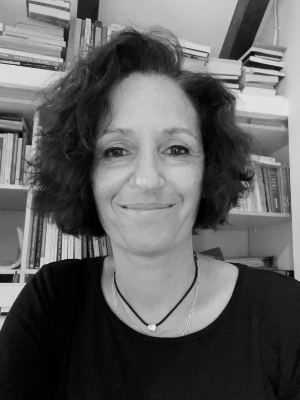
Annabel Herzog is professor of political theory and the head of the Cultural Studies Program at the School of Political Science at the University of Haifa, Israel. She is the editor of Hannah Arendt: Totalitarisme et banalité du mal (Paris: Presses Universitaires de France, 2011); the author of Penser autrement la politique (Paris: 1997), of Levinas’s Politics: Justice, Mercy, Universality (Philadelphia: University of Pennsylvania Press, 2020), and of many essays on ethics, politics, and hermeneutics. Her research focuses on the work of 20th-century philosophers, such as Emmanuel Levinas, Hannah Arendt, and Jacques Derrida; on contemporary Jewish philosophy; on the relation between philosophy and literature; on the dystopian imagination; on trauma and memory; on the relation between ethics and politics.

Dana Hollander is Associate Professor at the Department of Religious Studies at McMaster University (Hamilton, Ontario, Canada), where she is also an associate member of the Department of Philosophy and a member of the MA Program in Cultural Studies & Critical Theory. Her research areas are modern Jewish thought, twentieth-century French and German philosophy/Theory, and German-Jewish studies. She is the author of Ethics Out of Law: Hermann Cohen and the “Neighbor” (University of Toronto Press, 2021) and Exemplarity and Chosenness. Rosenzweig and Derrida on the Nation of Philosophy (Stanford University Press, 2008) and the translator of Jacob Taubes, The Political Theology of Paul (Stanford University Press, 2004). Homepage: https://socialsciences.mcmaster.ca/danahol/
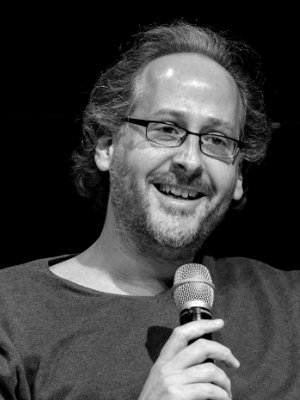
Elad Lapidot is professor for Culture Studies at the University of Lille, France. He specializes in philosophy, Jewish thought and Talmud and was teaching at the University of Bern, Switzerland, the Humboldt Universität Berlin and the Freie Universität Berlin. His work is guided by questions concerning the relation between knowledge and politics. Among his publications: Jews Out of the Question. A Critique of Anti-Anti-Semitism (SUNY Press, 2020), Hebrew translation with introduction and commentary of Hegel’s Phänomenologie des Geistes, Vol. 1 (Resling, 2020), Heidegger and Jewish Thought. Difficult Others, (Rowman & Littlefield, 2018), and Etre sans mot dire : La logiqe de ‘Sein und Zeit’ (Zeta Books, 2010).
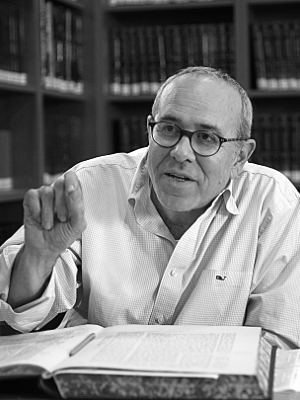
Menachem Lorberbaum is Vice Dean of Humanities and Professor of Jewish Philosophy at Tel Aviv University. He chaired the Graduate School of Philosophy and the Department of Jewish Philosophy at TAU (2004) and was the founding chair of the Department of Hebrew Culture Studies (2004-2008). Prof. Lorberbaum is also a founding member of the Shalom Hartman Institute, Jerusalem where he headed the Bet Midrash program.
Prof. Lorberbaum has just published a study of Hassidism as a model of Jewish religious revitalization in early modernity, Before Hassidism (Bialik Institute 2022). His work in first-order Jewish Theology, I Seek thy Countenance was published by Carmel, Bar-Ilan and the Hartman Institute (2021). He is author of Politics and the Limits of Law (Stanford 2001; Hebrew: 2006) and We are Dazzled by His Beauty (Hebrew, Ben Zvi Institute 2011). Together with Professors Michael Walzer of Princeton and Noam Zohar of Bar-Ilan he is a senior editor of the Jewish Political Tradition series (vol 1 “Authority,” Yale University Press 2000, Hebrew: 2007; vol. 2 “Membership,” Yale University Press 2003, Hebrew: 2018; vol. 3 “Community,” Yale University Press 2018). He is editor of the new and first complete Hebrew translation of Thomas Hobbes’ Leviathan (Shalem 2009).
Lorberbaum’s scholarship focuses on the formation of political and theological discourse and their interaction. Central to his work has been the effort to help create a new political language for the modern day Jewish polity.
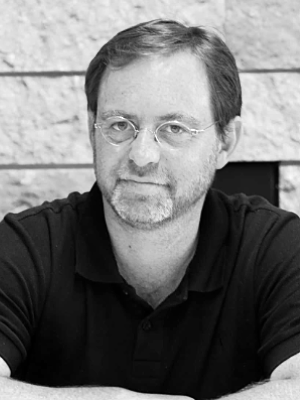
Yakir Paz is a lecturer in the departments of Talmud and Classics at the Hebrew University. His research focuses on Homeric, rabbinic and Christian commentaries in antiquity, Roman and rabbinic law, Jews and Christians in the Sasanian Empire, religious polemics in Late Antiquity, Syriac literature and ancient magic.
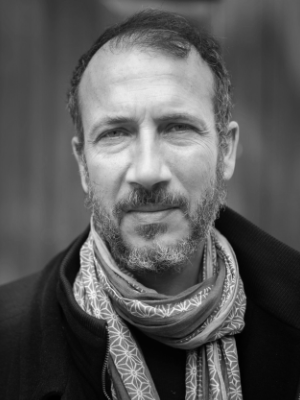
Ivan Segré, born in 1973 in Paris, is a Franco-Israeli philosopher and author of a dozen books, including Qu’appelle-t-on penser Auschwitz (Lignes, 2009) and La Souveraineté adamique (Amsterdam, 2022). He studied the Talmud for several years in Israel.
Program
Day 1 – October 20 – Thursday
| 14:00 | Meeting at the seminar room | |
| 14:30-16:00 | Session 1 Elad Lapidot | |
| 16:00-16:30 | Coffee Break | |
| 16:30-18:00 | Session 2 Yakir Paz | |
| 18:00 | Dinner | |
| 20:00 | Evening lecture Annabel Herzog “The Antinomy of Ethics and Politics: Levinas’s Reading of the Talmud.” Location: University of Antwerp |
Day 2 – October 21 – Friday
| 09:30-11:00 | Session 3 Dana Hollander | |
| 11:00-11:30 | Coffee Break | |
| 11:30-13:00 | Session 4 Agata Bielik-Robeson | |
| 13:00-14:30 | Lunch Break | |
| 14:30-16:00 | Session 5 Ivan Segré | |
| 16:00-20:00 | Free Time | |
| 20:00 | Shabbat Dinner |
Day 3 – October 22 – Saturday
| 11:00-12:30 | Session 6 Menachem Lorberbaum | |
| 12:30-14:00 | Lunch Break | |
| 14:00-15:30 | Session 7 Annabel Herzog | |
| 15:30-16:00 | Coffee Break | |
| 16:00-17:30 | Session 8 Ulrike Björk | |
| 17:30-18:00 | Coffee Break | |
| 18:00-19:30 | Session 9 Quentin Le Gurun | |
| 20:00 | Dinner |
Day 4 – October 23 – Sunday
| 9:00-11:00 | Session 10 Arthur Cools | |
| 11:00-11:30 | Coffee Break | |
| 11:30-13:30 | Session 11 Concluding Discussion |



